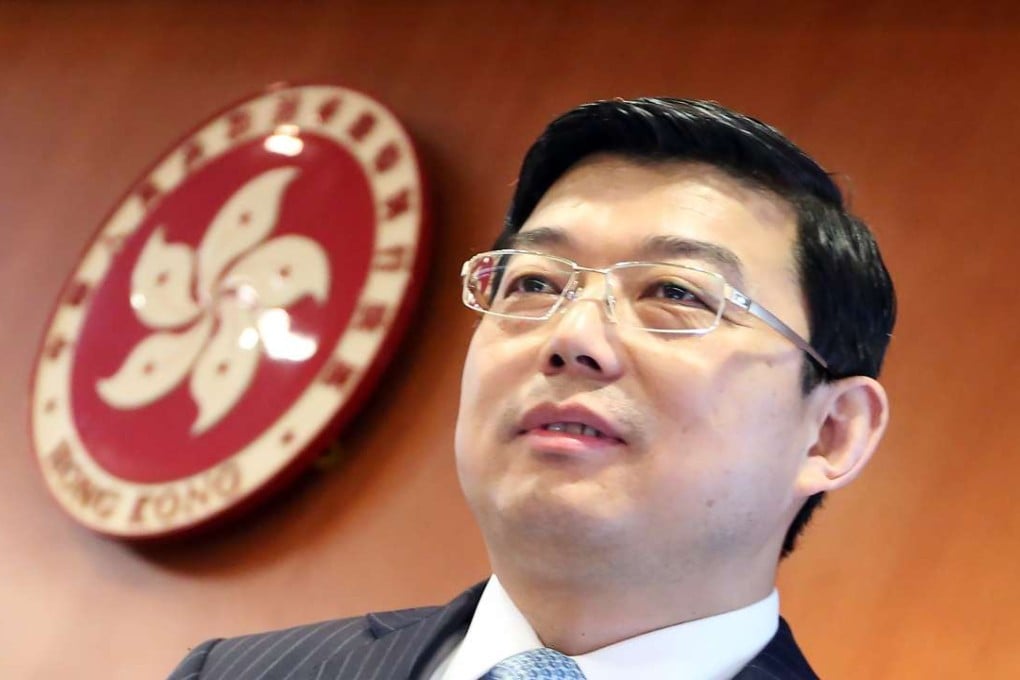Beijing official rejects need for development of democracy in Hong Kong over next decade
Elections in regions such as the Middle East have only led to civil wars and refugee crises, says legal head of Beijing’s liaison office in the city

Beijing has poured cold water on Hong Kong’s electoral reform aspirations, saying the city had pressing livelihood concerns to handle in the coming five to 10 years.
The remarks by Wang Zhenmin, the legal chief for the central government’s liaison office, drew the ire of pan-democrats, who said universal suffrage was a goal contained in the Basic Law and the city’s social problems were tied to the “flaws” of its political structure.
“Political reform has failed after so many years. “[Hong Kong] cannot afford to dedicate energy to political reform in the next five or 10 years, but not to housing, people’s livelihoods and the economy,” Wang told an academic conference on Hong Kong affairs held in Beijing on Saturday.
Wang, a former Tsinghua University law dean, warned that the push for democracy could result in endless political instability. “Middle Eastern or other countries, having achieved universal suffrage, saw civil wars and internal conflicts, resulting in waves of refugees every single day,” Wang said.
At the same forum, former deputy head of the PLA Hong Kong Garrison, Wang Junli, said the city was falling short of mainland standards for national security and pointed to the need for Article 23 legislation which covers threats to the state.
“Although Hong Kong is a small place ... it is on par with the South China Sea, Taiwan Strait, Korean peninsula” and parts of western China such as Tibet and Xinjiang, he said. Beijing needed Hong Kong to be stable so that the central government’s “limited strategic energy” would not be diluted, he said.
Both men’s comments could put pressure on incoming chief executive Carrie Lam Cheng Yuet-ngor, who has vowed to bridge the gap with pan-democrats and all but shunned legislative work for Article 23, a thorny issue that attracted 500,000 protestors in 2003. She also did not commit to restarting political reform.